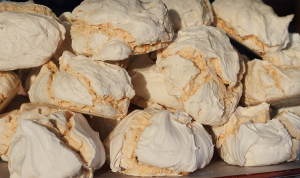
A Quick Look at Common Myths
The idea of coffee grounds deterring snakes is a widespread notion, often whispered among gardeners and nature lovers alike. However, the reality is a bit more complicated than that simple folk remedy. While some might believe this to be true for a multitude of reasons, there’s no concrete scientific evidence to back up this claim.
We’ll delve deeper into the myths surrounding coffee grounds and snakes to explore what actually works in keeping these slithery creatures at bay. And while we’re here, let’s address some common misconceptions about pest repellents.
Firstly, it’s important to remember that snake repellents are largely ineffective in a broad sense. Snakes, like most animals, rely on their senses for navigation and finding prey. Their senses of smell, hearing, and even touch play crucial roles in identifying potential targets.
And while they might be attracted to certain smells in the environment, it’s unlikely that coffee grounds alone would have a significant impact on repelling snakes. It all comes down to individual preferences and the specific snake species involved.
So why does this myth persist? Well, there are several possible explanations for its widespread presence. Maybe it stems from personal experiences where a sudden shift in behavior was noticed after using coffee grounds around their property.
Another explanation could be simply due to cultural beliefs passed down through generations. Perhaps an old wives’ tale or local folklore played a role in solidifying this idea, making it a part of the cultural narrative.
So while we might not have strong scientific proof, let’s look at what actually works in keeping snakes away from our homes and gardens.
The Reality Behind Snake Protection
The real key to snake prevention lies in understanding their natural behavior and habitat preferences. Snakes are attracted to certain environments that provide ample shelter, moisture, and sources of prey.
One common misconception is that coffee grounds would somehow mask the scent of a home’s ecosystem from snakes. However, this doesn’t hold water; snakes rely on other senses besides smell to navigate their environment.
So, how can we effectively repel snakes? The magic lies in understanding and modifying the conditions that attract them:
1. **Habitat Modification:** Eliminating potential snake havens like cluttered spaces, overgrown vegetation, and moisture-logged areas is crucial. Remember to keep your surroundings clean and tidy.
2. **Seal Off Entry Points:** Snakes are adept at squeezing through small openings, so it’s vital to seal cracks in walls, foundations, and doors.
3. **Secure Trash Cans:** Open trash cans serve as both an enticing food source and a potential nesting point for snakes.
4. **Natural Deterrents:** Certain natural repellents like peppermint, basil, or garlic have been known to repel certain types of pests, including insects that might attract snakes.
5. **Professional Pest Control:** For persistent snake infestations, a professional pest control service can help identify and address the issue effectively.
The Bottom Line: Coffee Grounds vs. Snakes
The simple truth is that coffee grounds are unlikely to repel snakes on their own. Their scent might deter some insects, but snakes mainly rely on sight, sound, smell, and touch to navigate.
The most effective way to keep snakes at bay is through a combination of strategies: habitat modification, sealing up potential entry points, using natural repellents like peppermint or basil, and opting for professional pest control in case of severe infestations.
So, while the idea of coffee grounds as snake repellent might sound intriguing, it’s best to focus on more reliable methods to keep these creatures at a safe distance from our homes and gardens.


